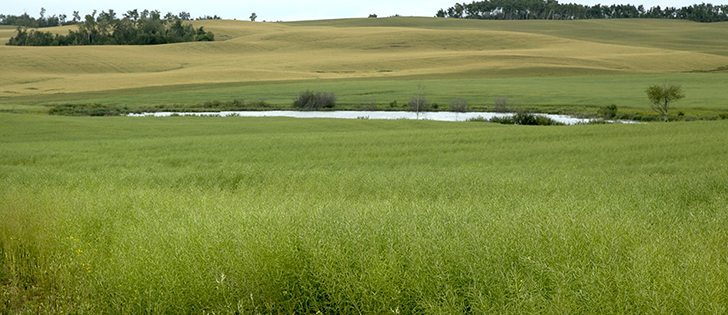Delay could be years | U.S. growers to seed Cibus’ sulfonylurea tolerant canola next year
By Sean Pratt
U.S. canola growers will have access to new non-genetically modified traits years before their Canadian counterparts, says a seed technology company.
Canada’s variety registration system and plant with novel traits safety assessment will create significant lag times in the commercial introduction of new traits from Cibus Global, according to the company.
Read Also

Manitoba extends Crown land rent freeze
Manitoba government links the continued rental rate freeze on grazing and forage leases to economic and environmental challenges facing the industry
Cibus uses its patented Rapid Trait Development System to conduct directed mutagenesis on plant genes.
The U.S. Department of Agriculture has determined the technology is non-transgenic, so Cibus’s new traits are not subject to the regulatory scrutiny of GM crops.
That is not the case in Canada, where all new plant traits are subject to the same regulatory review no matter how they were created.
Those traits have to be field tested in expensive confined trials in some of the worst areas for growing crops, said Dave Voss, vice-president of commercial development with Cibus.
In addition, new crops have to go through a lengthy variety registration process in Canada that they don’t face in the United States.
The upshot is that new canola traits developed by Cibus will hit the market in the U.S. well in advance of Canada.
“At minimum, there will be two years (delay) and most likely three to four,” said Voss.
That doesn’t sit well with Brett Halstead, president of the Canadian Canola Growers Association.
“That puts us at a competitive disadvantage with some of our world competitors. That’s not a good thing,” he said.
Halstead thinks Canada’s regulatory approval process is cumbersome, but he doesn’t want to tinker with the two-year variety registration process.
“I’m comfortable with our variety registration system here on canola. It’s much more flexible than it is in cereals,” he said.
Cibus’s first product is a non-GM sulfonylurea tolerant canola, which was launched in the U.S. last month.
The Canadian lag time won’t be as long as with future products because Cibus had to get the initial USDA ruling that the technology was non-GM.
The product has received full regulatory approval from the Canadian Food Inspection Agency and Health Canada, but the herbicide used in the new system needs to be approved by the Pest Management Regulatory Agency and the hybrids have to make their way through Canada’s variety registration system.
“The earliest we can get into Canada is 2016,” said Voss.
The company expects U.S. growers will plant 40,000 to 50,000 acres of the new herbicide tolerant canola system next spring. Most of the acres will be in North Dakota, Montana and Minnesota.
Canola was seeded on 1.7 million acres in the U.S. this year.
Voss thinks SU canola will be a nice rotational fit for U.S. soybean farmers because producers planting glyphosate tolerant soybeans are having problems controlling glyphosate tolerant canola volunteers.
“The early indications are that this will be a widely grown canola,” he said.
Halstead said Canadian interest will vary by farm. He wouldn’t grow the crop on his farm near Nokomis, Sask., because he grows peas, lentils and cereal crops that use Group 2 herbicides. Sulfonylurea is also a Group 2 herbicide.
“When you’re in pea and lentil country, I don’t know if it’s going to have the fit in that area,” he said.
However, it could prove popular with soybean growers in southern Manitoba.
Voss said the crop meets the growing U.S. demand for non-GM canola.
Pacific Coast Canola, a crushing plant in Warden, Washington, has said it will take all the non-GM canola that growers can produce.
Cibus has partnered with Rotam, an agricultural chemical company that has developed two new Group 2 herbicides to be used in conjunction with the SU canola system.
Rotam operates in 60 countries, but it is relatively new to North America. The company has a presence in Mexico and a small but growing sales team in the U.S.
The company’s Draft herbicide is in front of Canadian regulators.
“We’re using this kind of as our springboard to move into Canada,” said Steve Stansell, marketing manager for Rotam North America.
He said the herbicide will be competitively priced and easy to use. It controls more than 60 weeds and requires low rates of application.
Stansell expects the PMRA approval to be in place in time for the anticipated 2016 Canadian launch.
“The last indications are we’re on track to be on the same timeline as Cibus is with their registration,” he said.
Voss said SU canola is the first offering in what is expected to be a long list of canola traits. It is currently working on yield and quality enhancing traits.
“We have the ability to basically do all the current transgenic products that are on the marketplace with the exception of B.t. corn,” he said.
sean.pratt@producer.com

















